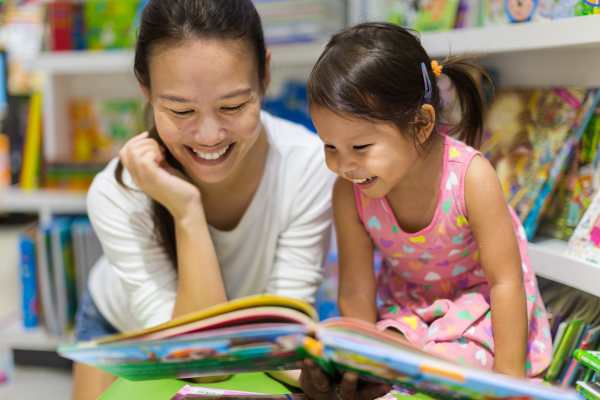How loving yourself improves your relationships is a concept that often gets overlooked in the rush of daily life. The truth is, the way you feel about yourself directly affects the quality of your relationships. Self-love creates a strong foundation, allowing you to build healthier, more balanced connections with others.
When you practice self-love, you naturally communicate better, set clearer boundaries, and are more empathetic. This leads to stronger, more fulfilling relationships because you’re not depending on others for validation. You’re already secure in who you are, which transforms how you interact with people.
By the end of this article, you’ll understand how cultivating self-love positively impacts all aspects of your relationships. Whether it’s friendships, romantic partnerships, or even family connections, the effects are profound. Let’s explore why loving yourself first is the key to improving every relationship in your life.
What Does It Mean to Love Yourself?
Loving yourself means embracing who you are with all your flaws, strengths, and imperfections. It’s not about arrogance or self-centeredness; it’s about having healthy self-esteem and valuing yourself. When you genuinely love yourself, you create emotional resilience that protects you from relying on others for happiness.
Self-love starts with self-awareness. It’s the practice of knowing your limits, understanding your needs, and being kind to yourself. By building this inner strength, you enhance your relationships because you no longer seek validation from others. Instead, you bring emotional stability to every interaction.
Developing self-compassion is a crucial part of this process. It involves being gentle with yourself during failures or mistakes. This mindset fosters a deeper understanding of yourself, making it easier to extend empathy to those around you. As a result, your relationships flourish.
Ultimately, how loving yourself improves your relationships lies in the balance between self-respect and caring for others. You become more patient, understanding, and less prone to conflict because you’re not operating from a place of insecurity.
Self-Love and Emotional Health
Your emotional health is the foundation of every relationship, and self-love directly improves it. By taking care of your emotional well-being, you build resilience against stress, anxiety, and depression. This positive emotional state allows you to show up as the best version of yourself in relationships.
When you love yourself, you’re better equipped to regulate your emotions. This means fewer emotional outbursts or unhealthy patterns, which often strain relationships. Instead, you handle conflicts calmly, communicate more effectively, and bring a sense of balance into your interactions.
Self-love also promotes emotional independence. You’re not overly reliant on others to make you feel good about yourself. This reduces codependency, allowing both parties in a relationship to grow and thrive independently while still supporting each other.
In the long run, how loving yourself improves your relationships is about emotional growth. Focusing on your emotional health increases positivity, patience, and empathy in your interactions, resulting in a more pleasant environment for everyone involved.
Setting Healthy Boundaries in Relationships
Setting boundaries is an act of self-love, and it’s crucial for maintaining healthy relationships. Boundaries help define what’s acceptable behavior and protect your emotional well-being. When you love yourself, you’re more likely to set and enforce these boundaries without guilt or fear.
Healthy boundaries create respect in relationships. They prevent misunderstandings, resentment, and burnout, which can all damage connections over time. By setting clear expectations, both you and the other person know where you stand, leading to more trust and less conflict.
Without boundaries, relationships can become draining, as one person may take more than they give. Loving yourself means knowing when to say no and prioritizing your needs. This not only protects you but also improves the quality of your relationships by fostering mutual respect.
In essence, how loving yourself improves your relationships involves learning to protect your energy and emotional health. Clear boundaries ensure that your relationships are balanced, respectful, and sustainable over the long term.
Improving Communication Through Self-Awareness
Effective communication is essential for every successful relationship, and self-love plays an important part in developing it. When you love yourself, you’re more self-aware, which means you understand your feelings, needs, and triggers. This clarity allows you to express yourself more openly and honestly with others.
Self-aware communication means you listen as much as you speak. You approach conversations with empathy, understanding where the other person is coming from. Because both parties feel heard and appreciated, they form deeper bonds and engage in more meaningful conversations.
When you communicate from a place of self-love, you’re less likely to engage in reactive or defensive behaviors. Instead, you respond thoughtfully, which prevents arguments from escalating. How loving yourself improves your relationships is evident in the calm, thoughtful communication it fosters.
In the end, self-awareness and self-love help you avoid misunderstandings and strengthen your emotional bonds. You become a better listener, a more compassionate partner, and a clearer communicator.
Attracting Healthy Relationships
When you truly love yourself, you naturally attract healthier relationships. This is because you set higher standards for how you’re treated. You’re no longer willing to settle for toxic or unhealthy connections. Instead, you seek out relationships that are built on mutual respect, trust, and understanding.
Self-love acts as a filter. It helps you recognize red flags early on and avoid relationships that are emotionally draining or manipulative. People who love themselves are drawn to others who also practice self-love, creating a cycle of healthy, balanced connections.
Another key aspect of attracting healthy relationships is the energy you project. When you’re confident and secure in yourself, you radiate positivity. This energy draws like-minded people who are interested in forming genuine, respectful connections.
Ultimately, how loving yourself improves your relationships is about attracting people who align with your values and self-respect. When you love yourself, you invite healthier, more fulfilling relationships into your life.
The Ripple Effect: How Self-Love Inspires Others
When you love yourself, it creates a ripple effect that influences those around you. Your self-love serves as an example, inspiring others to treat themselves with the same kindness and respect. This shift can improve not just your relationships but also the broader social environment.
By practicing self-love, you raise the emotional standard for how people should interact. When others see you respecting your own boundaries and practicing self-care, it encourages them to do the same. This leads to more empathetic, supportive relationships all around.
In many ways, how loving yourself improves your relationships extends beyond personal benefits. It fosters a culture of mutual respect and kindness, which can expand to families, friendships, and even businesses. Your love for yourself serves as a catalyst for positive development in others.
This ripple effect not only strengthens individual relationships but also contributes to a healthier, more connected community. When everyone prioritizes self-respect, relationships naturally become more supportive and uplifting.
The Journey to Self-Love and Stronger Relationships
The journey to loving yourself is ongoing, but the rewards are undeniable. As you cultivate self-love, you’ll notice a shift in the quality of your relationships. You’ll feel more confident, communicate more effectively, and attract people who respect and value you.
Loving yourself isn’t selfish—it’s the foundation of every healthy relationship. By nurturing your own emotional well-being, you improve not just your life, but the lives of those around you. It’s a lifelong journey worth taking.
Remember, how loving yourself improves your relationships is about creating balance, fostering emotional health, and inspiring positive change in your personal connections. The more you practice self-love, the better your relationships will become.
Questions About Self-Love and Relationships
How does self-love impact relationships?
Self-love impacts relationships by fostering emotional independence and reducing reliance on others for validation. When you love yourself, you communicate better, set healthier boundaries, and attract people who respect and value you.
Can self-love improve a failing relationship?
Yes, self-love can improve a failing relationship by allowing you to assess your needs and communicate them effectively. It also helps you set boundaries and address unhealthy dynamics, creating space for growth and improvement.
How do I practice self-love in a relationship?
Practicing self-love in a relationship means prioritizing your emotional health, setting clear boundaries, and maintaining your individuality. It also involves communicating openly with your partner about your needs and ensuring the relationship remains balanced.
Is it possible to love someone else without loving yourself?
While you can love someone without fully loving yourself, it often leads to unhealthy patterns, such as dependency or insecurity. Loving yourself first creates a stronger foundation for healthier, more balanced relationships.

Emily Johnson is a writer focused on personal development, relationships, and well-being. Her articles offer practical advice for self-discovery, growth, and effective communication. With a blend of empathy and expertise, she guides readers toward a more fulfilling and balanced life.

